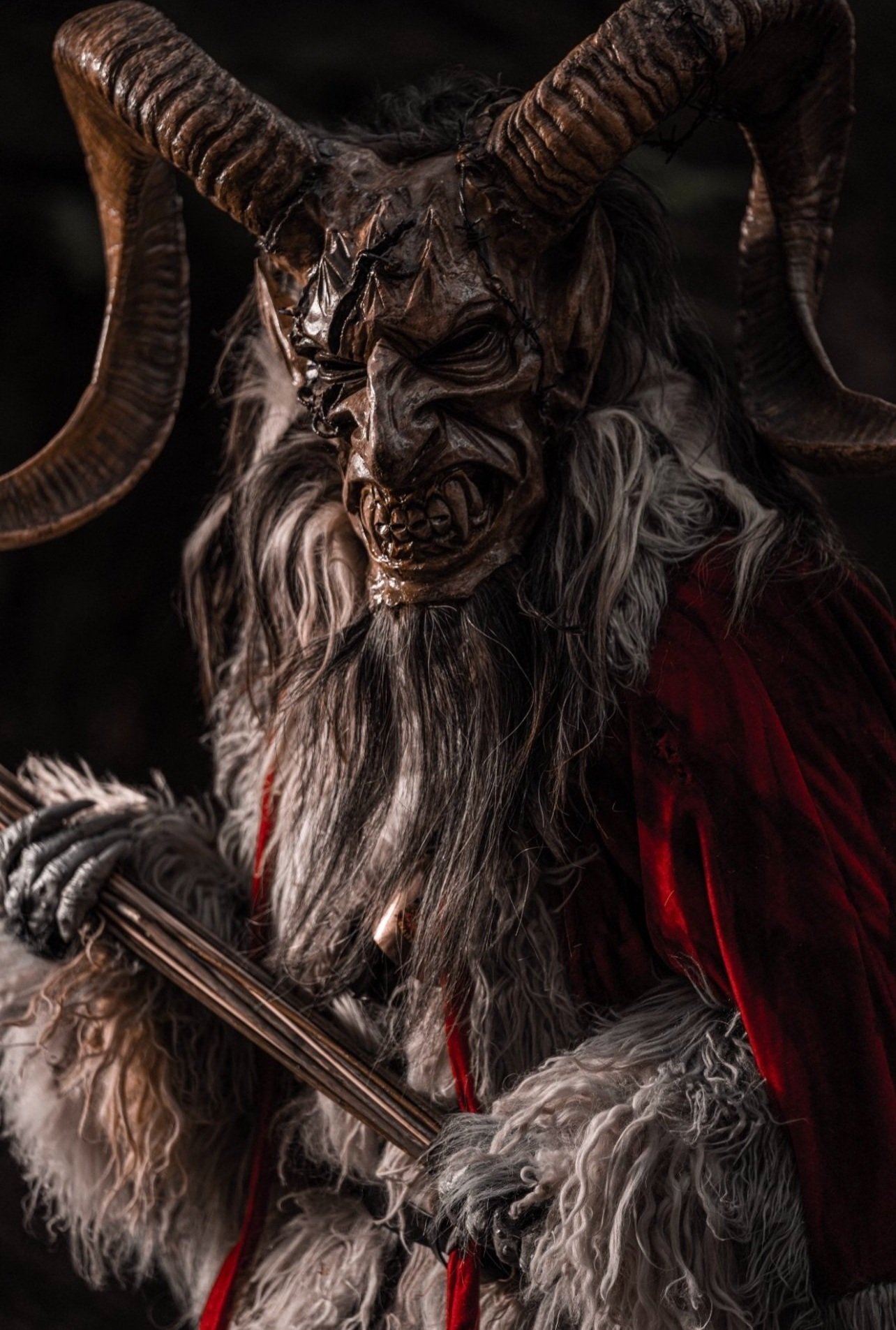WHO IS KRAMPUS?
Krampus is an ancient, mythical creature from Bavarian, European tradition. Most cultures and theologies have opposing icons representing “good and evil” to inspire and deter behavior. Krampus is a Yuletide icon who predates St. Nicholas and was intended to deter naughty behavior, particularly around the winter solstice time of year.
In more modern times, the popular tradition was combined with St. Nicholas and continued in its European popularity with the holiday evolution of Santa Claus. Nowadays, as the folklore moves global, Krampus is frequently referred to as “Santa’s Shadow.” The two are companions; where Santa rewards good behavior, Krampus punishes the naughty (the Bavarian substitute for coal in the stocking).
Krampus is secular and all-inclusive. Despite his appearance resembling other religious icons, he is not associated with theology and finds a more appropriate place in culture and tradition. While some faiths, in Europe, may have integrated the tradition into religious celebrations, it is the result of heritage and tradition, and not the religious symbolism of the struggle between good and evil.
Krampusnacht usually occurs on December 5th and is the is a prelude to Yuletide celebrations, including The Feast of St. Nicholas (where celebrated), Christmas and Winter Solstice. The event frequently features a Krampuslauf (Kraumpus Run / Parade) where celebrants have fun interacting with costumed performers and enjoying a different tradition, during a fun time of the year.
“Krampus is a special character who challenges what we understand about our personal holiday folklore. Krampus has existed since before Santa (or “Father Christmas”), manufactured to keep children well-behaved. Although he previously existed to keep children on the “nice list,” he now challenges the Christmas capitalistic pressure to somehow match Santa’s mythological generosity. What if we simply celebrated the good, gratitude, and greatness in each other instead? What if Krampus is here to be celebrated as a reminder that we have the choice to be kind, patient, and compassionate? Live on Krampus Bremerton!”
- Erinn Hale

